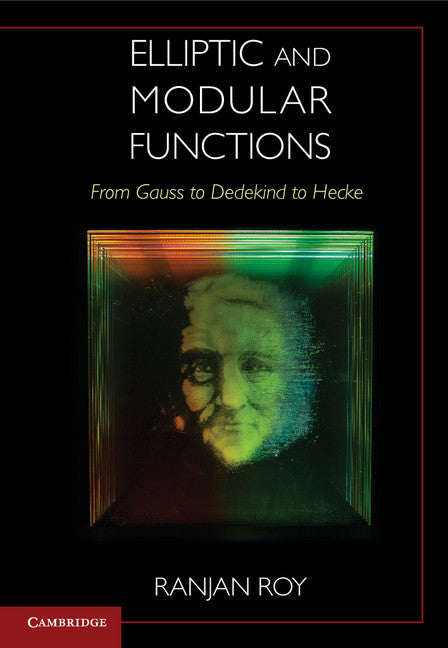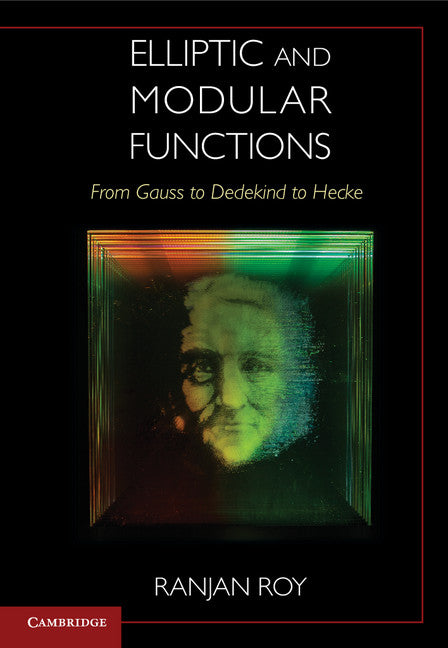Freshly Printed - allow 8 days lead
Couldn't load pickup availability
Elliptic and Modular Functions from Gauss to Dedekind to Hecke
A thorough guide to elliptic functions and modular forms that demonstrates the relevance and usefulness of historical sources.
Ranjan Roy (Author)
9781107159389, Cambridge University Press
Hardback, published 18 April 2017
488 pages, 13 b/w illus.
26.1 x 18.2 x 3.1 cm, 1.02 kg
'This book will be a valuable resource for understanding modular functions in their historical context, especially for readers not fluent in the languages of the original papers.' Paul M. Jenkins, Mathematical Reviews
This thorough work presents the fundamental results of modular function theory as developed during the nineteenth and early-twentieth centuries. It features beautiful formulas and derives them using skillful and ingenious manipulations, especially classical methods often overlooked today. Starting with the work of Gauss, Abel, and Jacobi, the book then discusses the attempt by Dedekind to construct a theory of modular functions independent of elliptic functions. The latter part of the book explains how Hurwitz completed this task and includes one of Hurwitz's landmark papers, translated by the author, and delves into the work of Ramanujan, Mordell, and Hecke. For graduate students and experts in modular forms, this book demonstrates the relevance of these original sources and thereby provides the reader with new insights into contemporary work in this area.
1. The basic modular forms
2. Gauss's contributions to modular forms
3. Abel and Jacobi on elliptic functions
4. Eisenstein and Hurwitz
5. Hermite's transformation of theta functions
6. Complex variables and elliptic functions
7. Hypergeometric functions
8. Dedekind's paper on modular functions
9. The n function and Dedekind sums
10. Modular forms and invariant theory
11. The modular and multiplier equations
12. The theory of modular forms as reworked by Hurwitz
13. Ramanujan's Euler products and modular forms
14. Dirichlet series and modular forms
15. Sums of squares
16. The Hecke operators.
Subject Areas: History of mathematics [PBX], Number theory [PBH]


